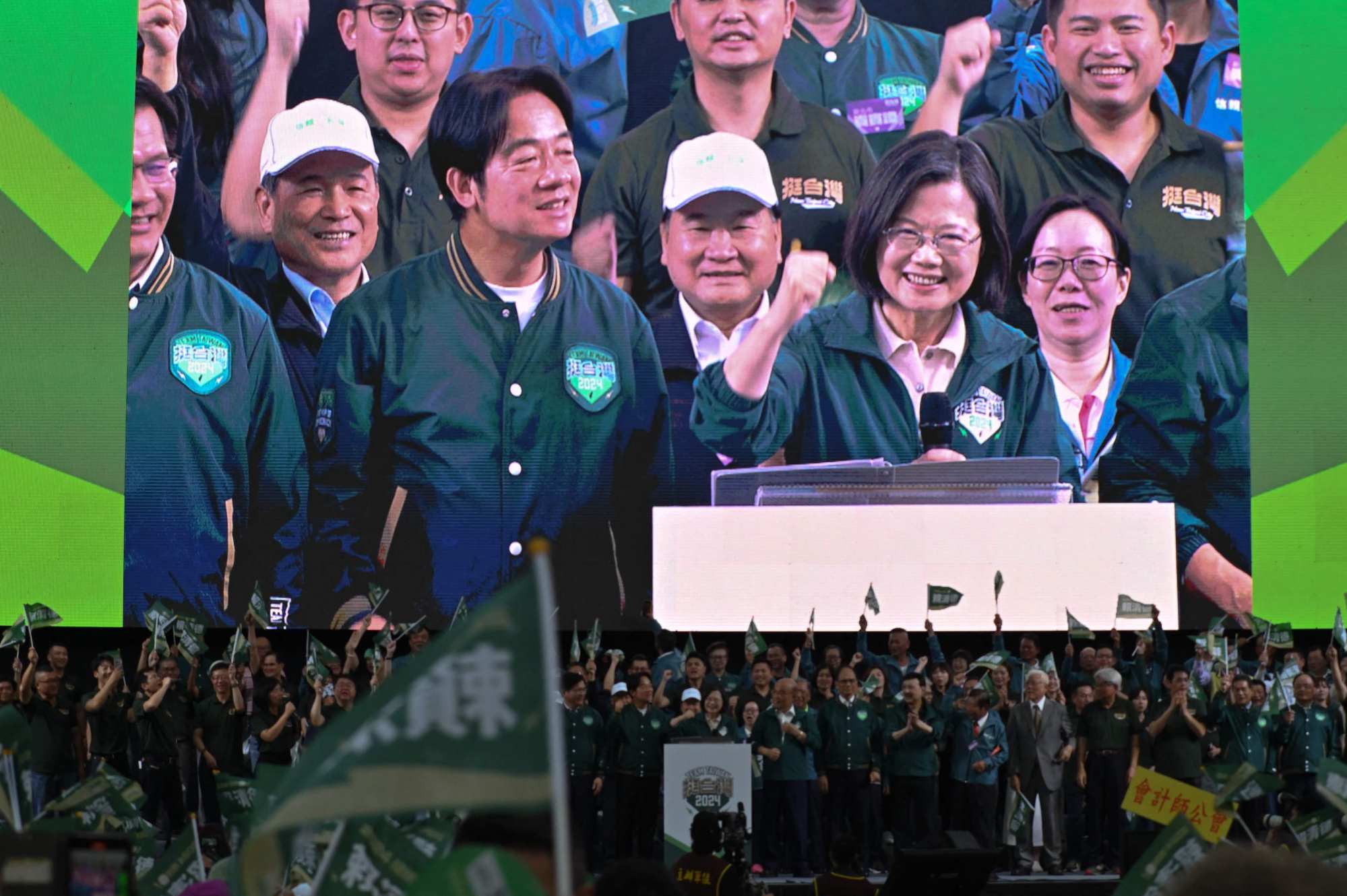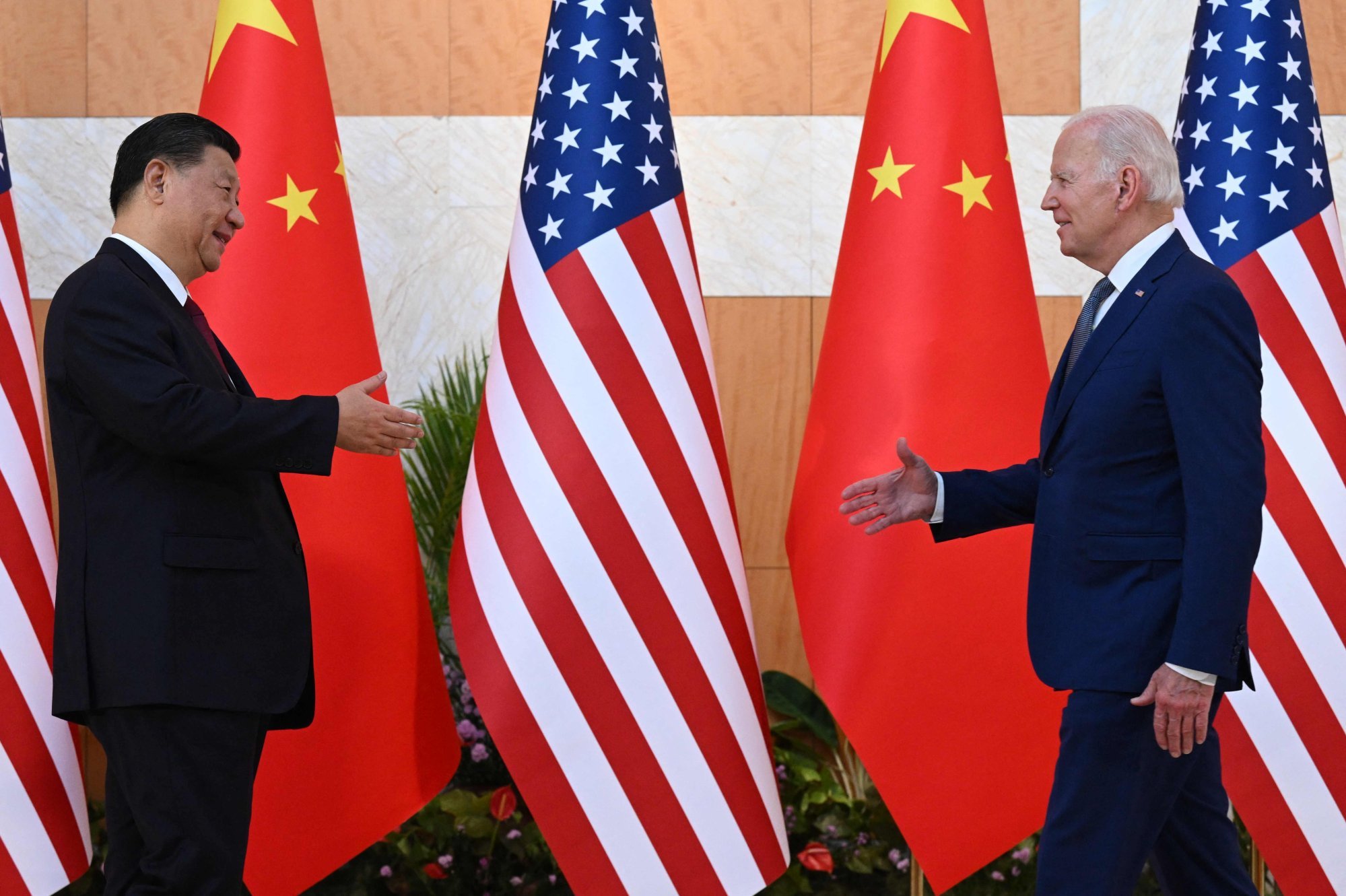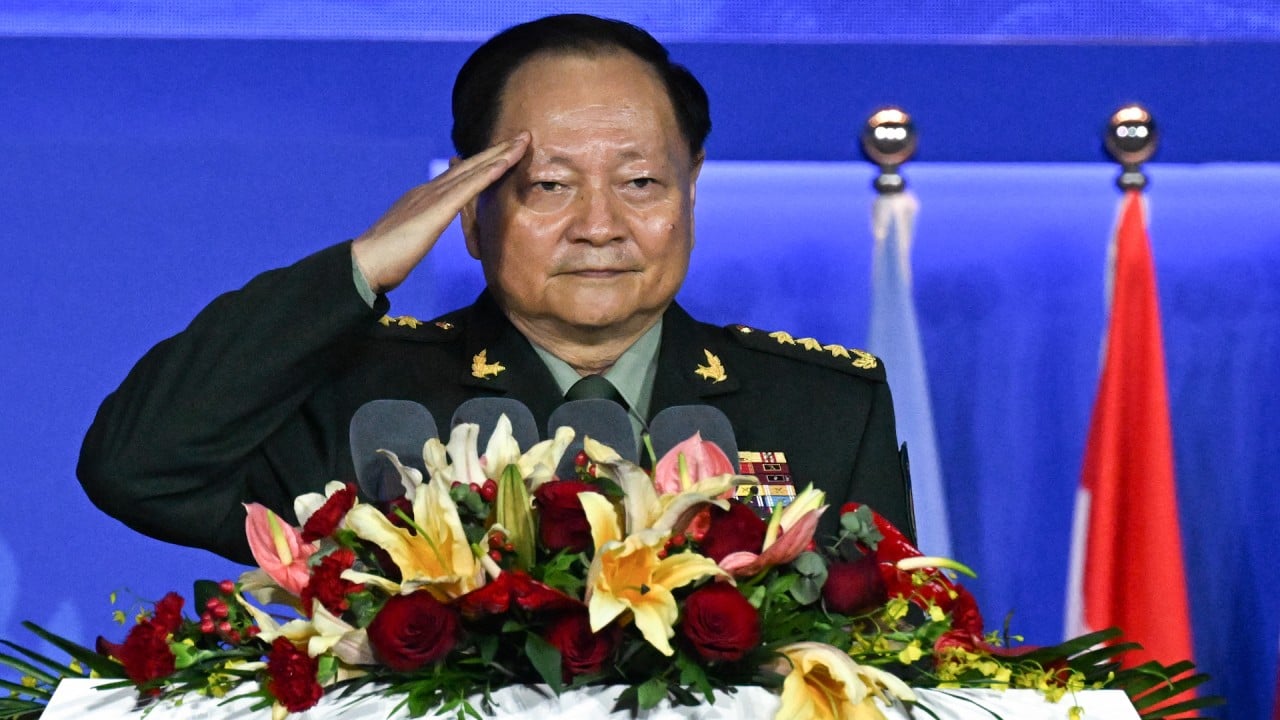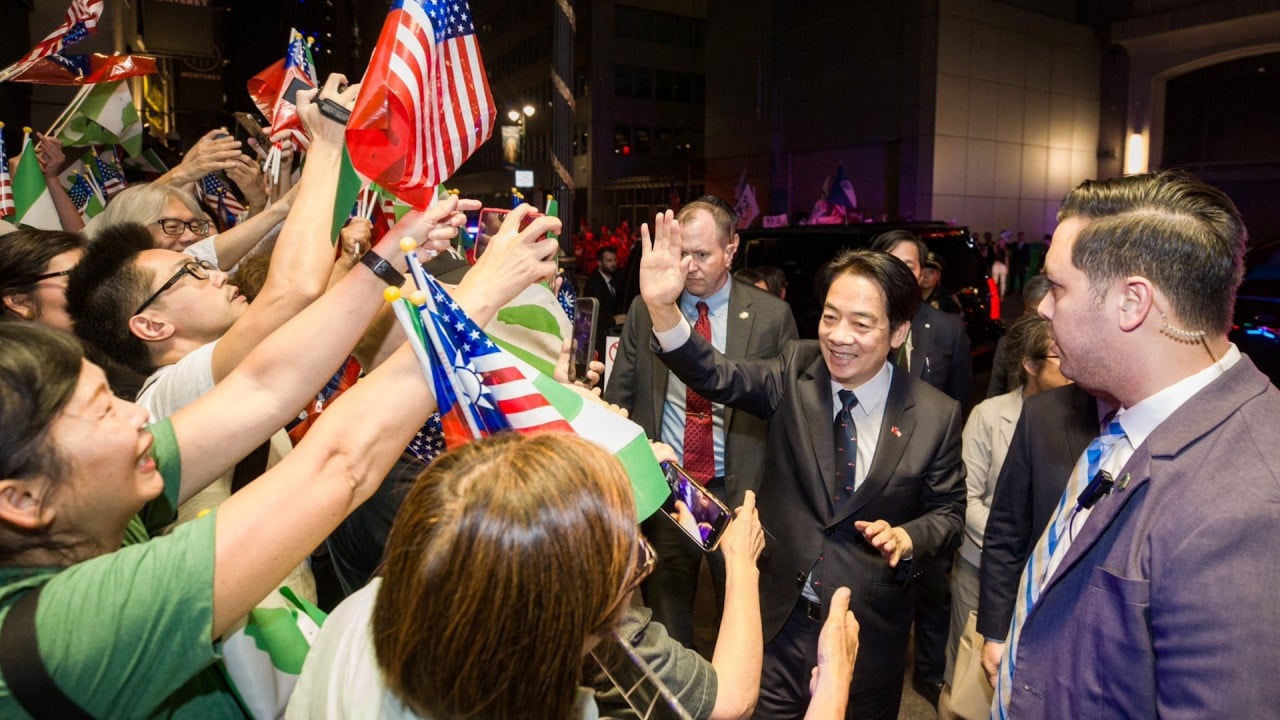Biden also has strong reason to want to preserve peace and stability ahead of his own re-election bid in November next year, and any further escalation could open him up to attacks from his Republican opponents that he is weak on China.
Sandra Oudkirk, the de facto American ambassador to Taiwan, has said Washington believes maintaining the status quo across the Taiwan Strait is good for peace and stability in Taiwan and throughout the Indo-Pacific region.
Zhu Zhiqun, an international relations professor at Bucknell University, said Biden was trying to lower the tensions in the Taiwan Strait.
Tsai tells security forum Taiwan will defend ‘hard-earned freedoms’
Tsai tells security forum Taiwan will defend ‘hard-earned freedoms’
“It is a subtle warning to the DPP candidate that he should not rock the boat and create more problems for the US,” Zhu said.
More importantly, the US is already engaged in the Ukraine war and the Israel-Gaza conflict, adding an extra layer to concerns about the Biden administration’s ability to swiftly counter Beijing.
“In the short run, obviously the US does not want to see the outbreak of another war, be it in the Taiwan Strait or South China Sea or the Korean peninsula,” Zhu said.
Yang Dali, a professor of political science at the University of Chicago, also said it was in the US interest to try to stabilise relations with China so that it did not “have another hotspot now flaring up”, and seek to manage potential tensions through open military channels of communication.
But Beijing’s repeated criticism of the DPP and Lai, whom it described as a “a troublemaker through and through”, suggests that it wants more than statements about not seeking independence and regards anything that might contribute to a permanent separation between the island and the Chinese mainland as taboo.
The ruling DPP has seen relations deteriorate since it came to power in 2016, with President Tsai Ing-wen angering Beijing by refusing to accept the 1992 Consensus, an unofficial agreement that there is only one China but that both sides may disagree about what that means.

Yang said he thought that Beijing wanted to hear a fresh statement from the US opposing Taiwanese independence.
“The Biden-Xi summit is likely to focus on the broad picture of managing the relationship peacefully and responsibly despite many differences. However, Xi is likely to press Biden to restate the US policy of following ‘one China’ and not supporting Taiwan independence,” Zhu said.
Sources have told the Post that the US side informed Beijing in advance on Lai’s stopover in America in April – something they have never done before – as a gesture of goodwill.
Chong Ja Ian, a US-China relations specialist at the National University of Singapore, said Taiwan was likely to be one of the main items on the agenda, with both countries having “overlap interests in avoiding unintended and uncontrolled escalation” in the Taiwan Strait. However, he warned they may not agree on what was needed to achieve that goal.
Kristian McGuire, an independent Washington-based analyst specialising in US-Taiwan relations and cross-strait relations, said: “The anticipated Xi-Biden summit at Apec and the preparatory meetings are excellent opportunities to convey intentions and make reassurances over Taiwan before getting too close to the coming Taiwan and US elections.”
Although the United States does not formally recognise Taiwan as an independent state, it simply acknowledges China’s claim that the island is part of its territory and still maintains unofficial relations with Taipei.
How Taiwan won the battle for return of Chiang Kai-shek diaries from US
How Taiwan won the battle for return of Chiang Kai-shek diaries from US
Meanwhile, Beijing has never renounced the use of force to bring what it sees as a breakaway province back under its control.
Xu Qinduo, a political analyst at the Chinese think tank Pangoal Institution, said rebuilding trust and confidence was not an easy task, and required “tremendous political will from the US” to show that it had no intention of backing Taiwanese statehood.
He said Beijing had lost confidence in Washington, due to its practice of moving closer to Taiwan militarily and diplomatically while making public statements of commitment to the one-China policy.
“Given the degree of the lack of trust between Beijing and Washington, even if Biden made new pledges over Taiwan, few would have much confidence in him because a Republican president could change everything,” Xu added.

Analysts have warned that both sides need to look for common ground and find ways to prevent misunderstandings escalating into armed conflict.
The US has adopted an integrated deterrence strategy that aims to use all tools of national power and collaborate more closely with US allies and partners to warn off Beijing.
On the diplomatic front, Washington has encouraged its allies and other governments to bolster unofficial ties with Taipei and to speak out about their interests in maintaining peace and stability in the Taiwan Strait.
PLA will ‘show no mercy’ against Taiwan independence moves, top general says
PLA will ‘show no mercy’ against Taiwan independence moves, top general says
“Washington sees obvious signs of support for Taiwan, including official visits, as a means to show support for the status quo and deter Beijing from trying to unilaterally change the status quo,” Chong said. “The more the US sees China increasing pressure on Taiwan, the more they may feel a need to show support for Taiwan.”
Some analysts say that Beijing’s increased military activities around Taiwan – including a major exercise in the wake of Pelosi’s visit last year – are in large part a response to what it sees as efforts by Taipei and Washington to make the separation between the island and the Chinese mainland permanent.
But they warn that the measures the US and Taiwanese have taken in response are only making the situation more unstable and volatile.
Zhu, from Bucknell University, said it was “counterproductive” for the US to try to deter Beijing by arming Taiwan and warned that the mainland was more likely to push for unification through force if it feared permanent separation was a possibility.
“It is crucial to have reassurance from Washington that it does not support Taiwanese independence, and also reassurance from Beijing that if Lai or any future Taiwan leader does not officially declare independence or change the ROC constitution, it will not use force,” he added, referring to the Republic of China, the island’s official name.
Zhu said Washington must emphasise to both Beijing and Taipei the importance of not changing the status quo unilaterally.
“Biden or other US leaders should dial down their rhetoric about the US defending Taiwan,” Zhu said. “Defending Taiwan’s democracy is one thing, [but] supporting Taiwan’s formal independence or permanent separation from China is quite another.”
Taiwan elections: how Foxconn investigation could backfire on Beijing
Taiwan elections: how Foxconn investigation could backfire on Beijing
Besides building confidence and seeking common ground, McGuire said there was a need for the relationship between Beijing and Washington to return to a stable state, as it could create a “more trustful and permissive environment for Beijing, Washington and Taipei to interact more freely”.
Xu from the Pangoal Institution said the Taiwan issue would “never [be] a security danger” if the US followed a policy of engaging with Beijing.
“A stable China-US relationship means neither side wants to see Taiwan as a stumbling block in the development of their ties,” he added.
He said this would mean Washington not seeking a closer relationship with Taiwan and “separatists” on the island not trying any “adventures” and in turn “China would find no reason to step up its military presence close to Taiwan”.



